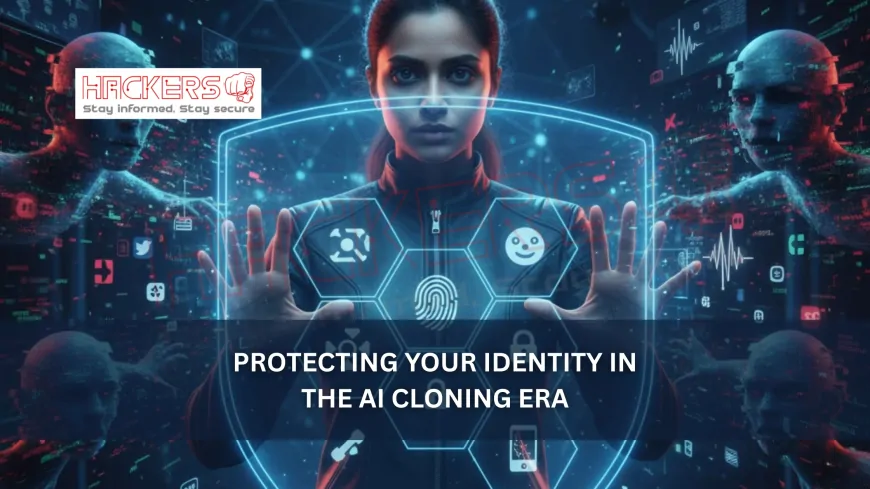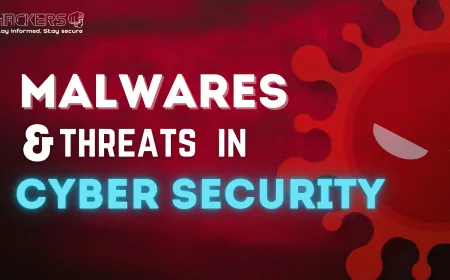How Can You Protect Your Digital Identity in the Age of AI Cloning?
Your voice calls your bank. It sounds exactly like you. It knows your birthday, your dog’s name, even that trip to Paris last summer. The bank transfers $10,000. But you never made the call. An AI cloned your voice from three seconds of audio on social media. This is not the future. This is today. AI can now copy your face, voice, writing style, and behavior in minutes. Scammers, stalkers, and spies are using it to steal money, reputations, and lives. Your digital identity, the online version of you, is under siege. But you are not helpless. This blog explains, in simple steps, what AI cloning is, how it works, and exactly what you can do to protect yourself. Your identity is your most valuable asset. It is time to lock it down.

Table of Contents
The Real Risks of Being Cloned
- Common AI Cloning Attacks
- 10 Steps to Protect Your Digital Identity
- Tools and Services That Help
- The Future of Identity in an AI World
- Conclusion
- Frequently Asked Questions
What Is AI Cloning?
AI cloning means creating a digital copy of a person using artificial intelligence. It is not science fiction. It is real, cheap, and easy.
- Voice cloning: copy speech from a short audio clip
- Face swapping: put your face on someone else’s body
- Text cloning: mimic your writing style and tone
- Behavior cloning: predict what you will say or do next
Tools like ElevenLabs, DeepFaceLab, and ChatGPT make it possible for anyone with a laptop.
How AI Cloning Works
AI learns from data. The more it has, the better the clone.
- Step 1: collect samples (your photos, videos, posts, voice notes)
- Step 2: train a model (feed data into AI like GPT or GAN)
- Step 3: generate output (fake video, audio, or text)
- Step 4: use in attack (scam, blackmail, impersonation)
A voice clone needs just 3 to 5 seconds of clear audio. A face needs 10 to 20 photos. Your social media is a goldmine.
The Real Risks of Being Cloned
AI cloning is not just creepy. It is dangerous.
- Financial theft: fake you calls bank, transfers money
- Reputation damage: deepfake video ruins career
- Blackmail: cloned voice says something illegal
- Identity theft: clone passes video KYC checks
- Emotional harm: family sees fake death or suicide video
In 2023, a CEO was tricked into wiring $243,000 after a deepfake video call with “his team.” It was all AI.
Common AI Cloning Attacks
Here are the top ways clones are used against you.
| Attack | How It Works | Prevention Tip |
|---|---|---|
| Voice Scam | Clone calls family or bank | Use code words with loved ones |
| Deepfake Video | Fake meeting or interview | Verify with second channel |
| Email Impersonation | AI writes like your boss | Check sender domain closely |
| Social Media Takeover | Clone posts as you | Lock account with 2FA |
| KYC Bypass | Fake video passes ID check | Use liveness detection apps |
10 Steps to Protect Your Digital Identity
You can fight back. Start today.
- Step 1: audit your online presence. Delete old posts, videos, voice notes
- Step 2: lock social media. Make accounts private. Remove voice from public
- Step 3: use strong, unique passwords and password manager
- Step 4: enable two-factor authentication (2FA) everywhere, prefer app or hardware key
- Step 5: avoid voice biometrics for banking. Use PIN or fingerprint
- Step 6: set up secret code words with family and bank for emergencies
- Step 7: watermark your photos and videos with tools like Adobe Content Authenticity
- Step 8: verify before trusting. Call back on known number. Use second channel
- Step 9: monitor your identity. Use services like Have I Been Pwned and credit freezes
- Step 10: educate others. Share this guide. The more aware, the safer we all are
Tools and Services That Help
Technology fights technology.
- Deepfake detection: Reality Defender, Sentinel, Microsoft Video Authenticator
- Voice protection: Pindrop, Nuance Gatekeeper
- Identity monitoring: LifeLock, IdentityForce, Aura
- Secure communication: Signal, Proton Mail, Session
- Privacy browsers: Brave, Firefox with strict tracking protection
- Hardware keys: YubiKey, Google Titan
Banks are adding “liveness checks” that detect AI clones. Ask your provider.
The Future of Identity in an AI World
AI cloning will get better. So will defenses.
- Biometric evolution: vein patterns, heartbeat, gait analysis
- Zero-knowledge proofs: prove you are you without showing data
- Digital watermarks: invisible tags in all media
- AI guardians: your personal AI detects clones of you
- Legal protection: deepfakes classified as fraud globally
By 2030, your digital identity may live on blockchain, untouchable by clones.
Conclusion
AI cloning is the biggest threat to your digital identity since phishing. It is fast, cheap, and convincing. A few seconds of your voice or a handful of photos can be weaponized to steal, scam, or shame. But you have power. By reducing your digital footprint, using strong authentication, verifying before trusting, and staying informed, you can protect yourself. The age of AI cloning is here. But so is the age of smarter defense. Your identity is yours. Keep it that way. Start with one step today. Lock your profiles. Enable 2FA. Talk to your family about code words. The clone is coming. Be ready.
Frequently Asked Questions
What is AI cloning?
Using artificial intelligence to create fake but realistic copies of your voice, face, or writing.
How much audio does AI need to clone my voice?
Just 3 to 5 seconds of clear speech. A voicemail or video is enough.
Can AI clone my face from one photo?
Not perfectly, but 10 to 20 photos give a convincing deepfake.
Is voice cloning illegal?
Not yet in most places, but using it for fraud is. Laws are catching up.
Can my bank tell if a call is cloned?
Some can with voice biometrics, but many cannot. Always use a code word.
Should I delete all my social media?
Not necessary. Make accounts private. Delete old voice and video posts.
Are deepfakes only for celebrities?
No. Anyone with public photos or voice is a target. Regular people are hit daily.
Can I detect a deepfake video?
Sometimes. Look for unnatural blinks, lip sync, or lighting. Use detection tools.
Is 2FA enough to stop cloning?
No. 2FA stops account takeover, not voice or video scams. Use it anyway.
Can AI clone my handwriting?
Yes. With enough samples, AI can forge signatures or notes.
Should I avoid video calls?
No. But record important ones. Verify identity with a pre-shared secret.
Can companies use my voice without permission?
Check terms. Some AI tools claim rights to your data. Read before uploading.
Will passwords disappear?
Eventually. Passkeys, biometrics, and hardware keys are replacing them.
Can I watermark my voice?
Not easily yet. But some tools add invisible audio markers.
Is my smart speaker recording me for cloning?
It records snippets. Keep it updated. Turn off when not in use.
Can children be cloned?
Yes. Teach kids not to share voice or video online. Use parental controls.
Are there anti-cloning laws?
Growing. California, Texas, and EU ban non-consensual deepfakes.
Can I sue if I am cloned?
Yes, for defamation, fraud, or privacy violation. Keep evidence.
Will AI ever be 100% safe?
No. But with awareness, tools, and habits, you can stay ahead.
How do I start protecting myself today?
Lock your social media. Enable 2FA. Set a family code word. Delete old voice posts.
What's Your Reaction?









































































